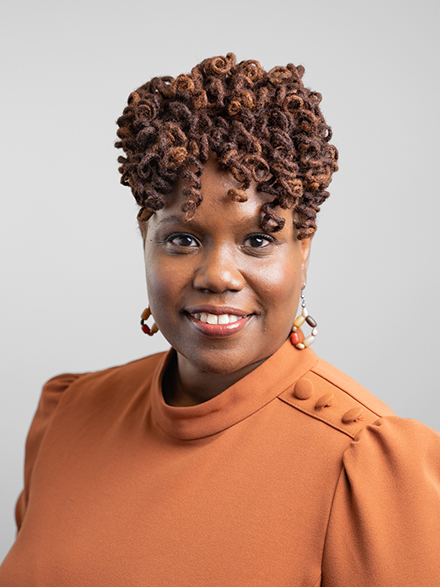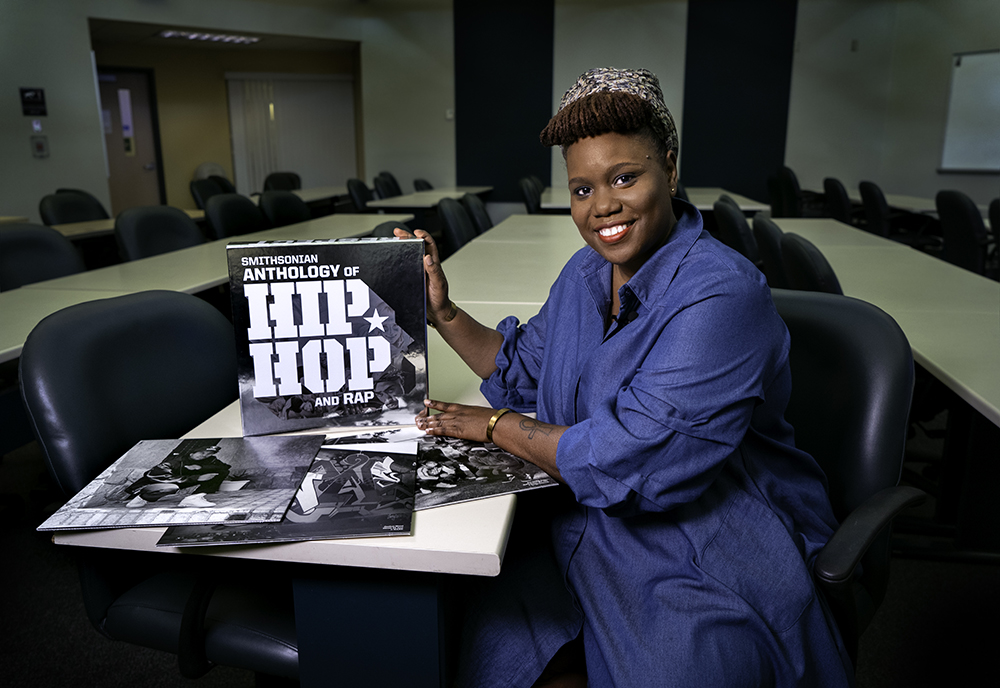By Kellie Britch, College of Arts and Sciences
Aisha Durham has always been interested in the ways in which media, like newspaper articles, television shows and films, represent cultures and identities — and how and when that representation fails to align with the lived experience.

Durham, who has worked in USF’s Department of Communication for 13 years, is a former Fulbright-Hays Faculty Fellow.
“Media representations help us cultivate our identities and inform our interactions,” said Durham, a professor in the Department of Communication and affiliate faculty in the Department of Humanities and Cultural Studies and the Department of Women’s, Gender and Sexuality Studies. “As a child, I was keenly aware of how newspapers, magazines, television shows and films framed me and other Black girls from public housing communities like me.”
Dissatisfied, Durham wanted to change what she perceived as “media misrepresentations.”
Durham’s work relies on autoethnography, a form of qualitative research and writing that connects personal experiences to cultural, social and political meanings and understandings with the goal of fostering engaged, empathetic representations.
“Dr. Aisha Durham is an award-winning Black feminist critic of national and international renown,” said Ambar Basu, the chair for the Department of Communication. “A trailblazer in hip-hop feminist media studies, Aisha's scholarship, teaching and advocacy have compelled us to reflect on and reorganize our interpretations of Blackness as they are produced in media, in policy and other knowledge platforms.”
In two of her books, “Home with Hip Hop Feminism: Performances in Communication and Culture,” which won an award from the National Communication Association, and “Home Girls, Make Some Noise!: Hip Hop Feminism Anthology,” Durham uses autoethnography to explore the intersectionality of Black feminism and hip-hop. She has continued this work as an advisory board member for the hip-hop anthology at The National Museum of African American History and Culture.
“It is my hope that my research can bring awareness to the ways we experience or make sense of media messages, and I hope by employing autoethnography and performance writing that I can demonstrate how embodied approaches can foster engaged, empathic learning that has the capacity to connect to each other’s humanity,” Durham said.
